Best Places To Retire in New Zealand in 2024
Most countries have a city or state that’s popular with retirees. In the US, it’s Florida, and in Australia, it’s the Gold Coast. But what about New Zealand? What city is the best for retirees?
If you are thinking of retiring in New Zealand, some of the best places include sunny Nelson, Wanaka, West Coast, Tauranga, Akaroa, and the Coromandel Peninsula.
Let’s break down a few ideal spots to retire in New Zealand, and hopefully, you’ll find the perfect place that will make your golden years truly shine. Read more about retirement in New Zealand in our detailed guide.
Why retire in New Zealand?
The standard age of retirement in New Zealand is 65, but this isn’t a mandatory or official age. As it happens, there isn’t an official retirement age in New Zealand.
65 is the age when you can access KiwiSaver (which is the New Zealand superannuation retirement fund scheme). However, you have to hold a KiwiSaver account for at least 5 years before you can withdraw, even if you’ve reached the withdrawal age. This is something to plan for since it’s not a smart idea to change your retirement funding plans in the years before you actually intend to retire.
New Zealand consistently ranks highly in polls rating peace (the 2nd most peaceful country in the world) and happiness (the 10th happiest country on the planet). So if you want a happy, peaceful place for your retirement, NZ becomes not just a fun choice but a logical one.
It’s possible for eligible foreigners (excluding Australians) to retire to New Zealand with a temporary retirement visitor visa. There are minimum requirements for investment and assets, and the visa is only for 2 years but may be renewed. Australians don’t need a visa for New Zealand.
Auckland is New Zealand’s biggest (and yes—the country’s most expensive) city, so it’s probably not so appealing for retirement, is it? But it’s a good starting point for comparisons as we take a closer look at the best of the best; the crème de la crème of New Zealand’s towns and cities for retirees.
1. Nelson
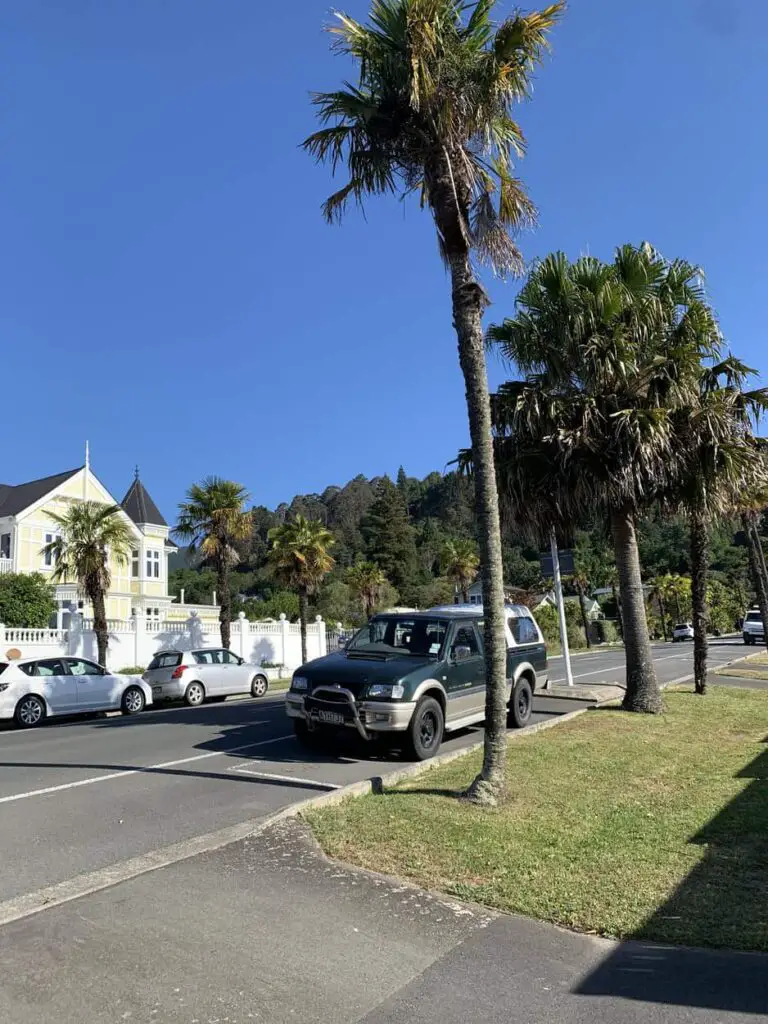
Who doesn’t love a good climate, especially if it feels like the Mediterranean? Nelson’s protected harbour and the mountains that surround it have led to a warm and sunny town at the top of the South Island. Unsurprisingly, it’s popular with retirees.
Some 19.3% of Nelson’s population are over the age of 65, comprising just under 10,000 people of Nelson’t total population (which is a little over 55,000 people). On average, Nelson’s consumer prices (even including rent) are 17.2% lower than Auckland’s.
The average rent in Nelson is NZ$472 per week, with a median purchase price of NZ$670,000. Of course, if you plan to downsize, a semi-detached property can be purchased or rented at lower prices.
The town features both a public hospital (Nelson Hospital) and a private one (Manuka Street Hospital).
It helps that Nelson is more or less the geographical centre of New Zealand and has pretty good transport connections, so it’s a great base for active retirees to explore the South Island.
2. Wanaka
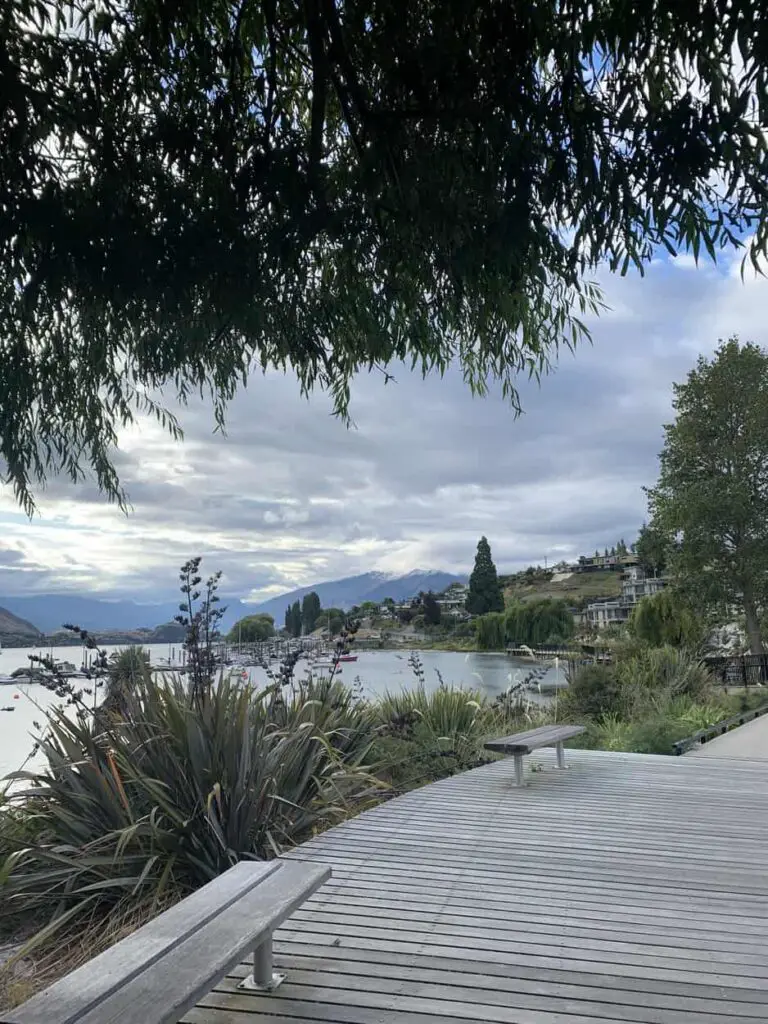
Wanaka is a resort town in Otago, in the South Island of New Zealand. It’s about 3 hours and 15 minutes to drive here from Dunedin or a little over an hour from Queenstown.
It’s a resort that caters to both summer and winter activities. In summer, a lot of people visit the gorgeous Lake Wanaka, and in the winter months, the surrounding mountains are teeming with skiers, snowboarders, hikers, and outdoor adventurers. Check out Hawea, a town 20 minutes away from Wanaka. It’s great for retirees too.
Around 17.7% of the town’s residents are aged 65 or older, meaning they can legally retire. Again, just like Nelson, Wanaka has a fairly high proportion of retired folks—especially considering its overall population is just over 9,500 people.
Wanaka’s weather is fairly pleasant when compared to the surrounding area. It has what’s called a semi-continental climate, meaning that the summer is a dry and hot affair, and the winters are cold and a little bit damp.
Maintaining an appropriate standard of healthcare for all its residents is a small problem in Wanaka. The town doesn’t have its own hospital, and the closest are in the nearby towns of Clyde (Dunstan Hospital) and Queenstown (Queenstown Hospital). There’s Wanaka Medical Centre, which only has the facilities to treat minor medical emergencies.
Real estate is expensive in Wanaka. The median house price is NZ$1,322,500—which is for a larger family home. This type of home might not even be that appealing for a retiree. Smaller, semi-detached homes, or even a granny flat, may be a better bet, but these types of dwellings aren’t so easy to find in Wanaka. It’s worth the effort, though.
3. West Coast (Greymouth)
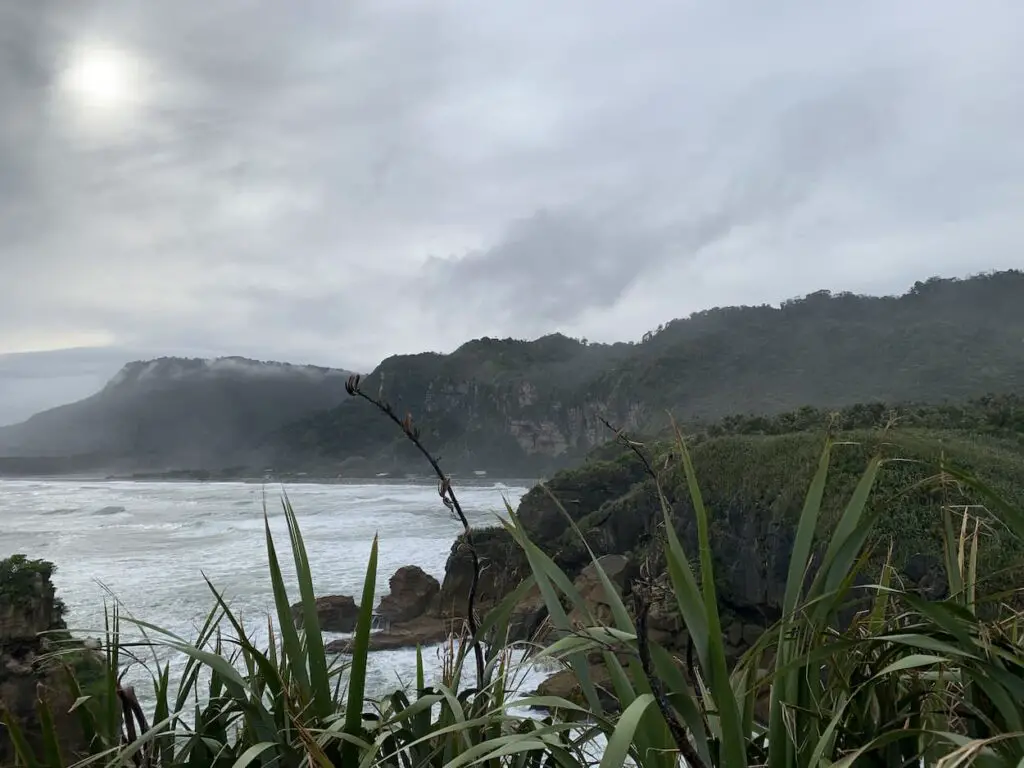
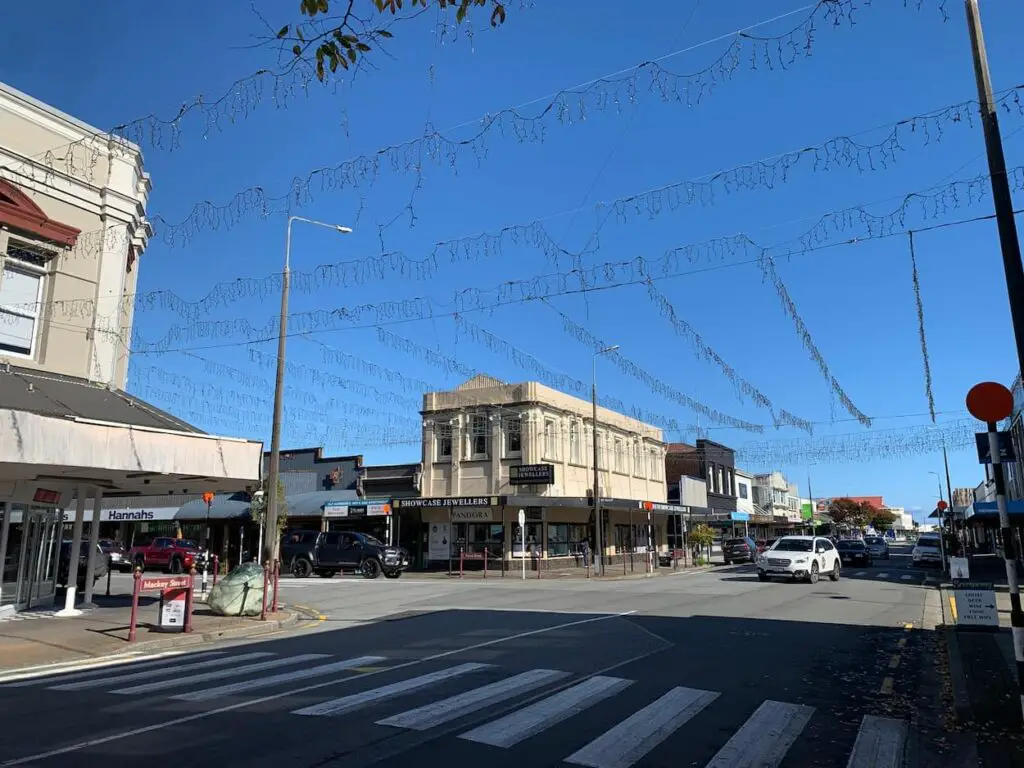
If you view retirement as the best time in life to escape the rat race and to have some quiet time to yourself, then you can’t look past New Zealand’s West Coast region—and particularly the town of Greymouth. This geography features some of the most sparsely populated parts of New Zealand (which isn’t a particularly highly populated country to begin with).
Greymouth’s total population is just under 8,000, so it’s not a big place. Of these 8,000, just over 20% are aged 65 and older, so Greymouth is a popular place for retirees.
Those retired 65s and older might be interested in another 65 – which is the 65% of the surrounding district that’s a conservation estate (like a national park, which can’t be developed).
Greymouth has an abundance of nature to explore and a reasonably low cost of living, but one thing that might be a deterrent to retirees is the weather. The summers are reasonably warm, but Greymouth is one of the rainiest parts of New Zealand.
The town doesn’t have the same problem that many small towns in New Zealand face—and it has managed to retain its hospital. It’s a smaller facility, but can cope with most medical emergencies—and yes, this is a factor that determines where a retiree might want to live in NZ.
The weather may not be nice—but the prices are. Greymouth is one of the cheaper places to retire in New Zealand. You can actually obtain a decent-sized home for a median price of NZ$390,000, and the median weekly rental for a house in Greymouth is only NZ$370.
4. Tauranga
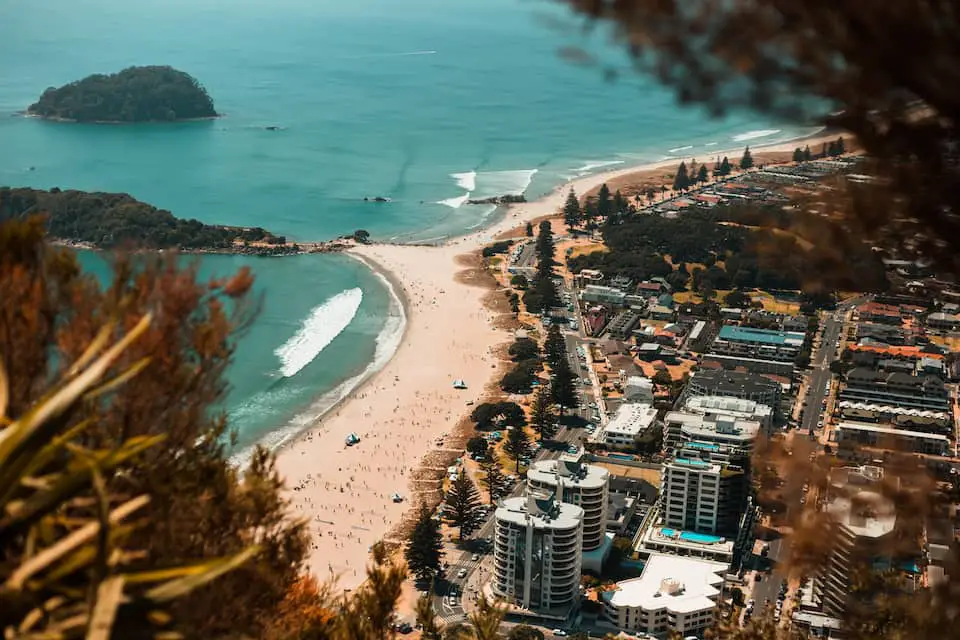
Tauranga, situated in the North Island’s Bay of Plenty, was once a popular destination for retirees. That has changed a little in recent years. Tauranga is growing extremely quickly, and might be a bit too expensive and fast-paced to be too appealing for retirees.
It has overtaken Dunedin and Napier to become New Zealand’s fifth-largest city. All these extra residents and the popularity of Tauranga with younger families means that retirees may not find the town to be their cup of tea. You may have better luck in the surrounding semi-rural communities, such as Bethlehem or Te Puna, where you can live in relative peace and quiet and only come into the city as needed.
19.7% of Tauranga’s residents are aged 65 or over and, therefore, have reached retirement age. Tauranga has a total population of just over 136,000 people, and retirees will find that Tauranga meets their healthcare needs very well. Tauranga hospital is a fairly large facility with a specialised geriatric care centre.
The weather of Tauranga and its surrounding coastal areas is a major draw card, which means that the place is still reasonably popular with retirees. Tauranga experiences just over 2,345 hours of sunshine each year, making it one of New Zealand’s sunniest places.
The weather is appealing, but the cost of living in Tauranga is discouraging—particularly for those on a fixed income. The median weekly rent in the area is NZ$680, and there have been reports of intense competition for available rental properties in Tauranga. The median property price for Tauranga is NZ$930,000.
5. Akaroa
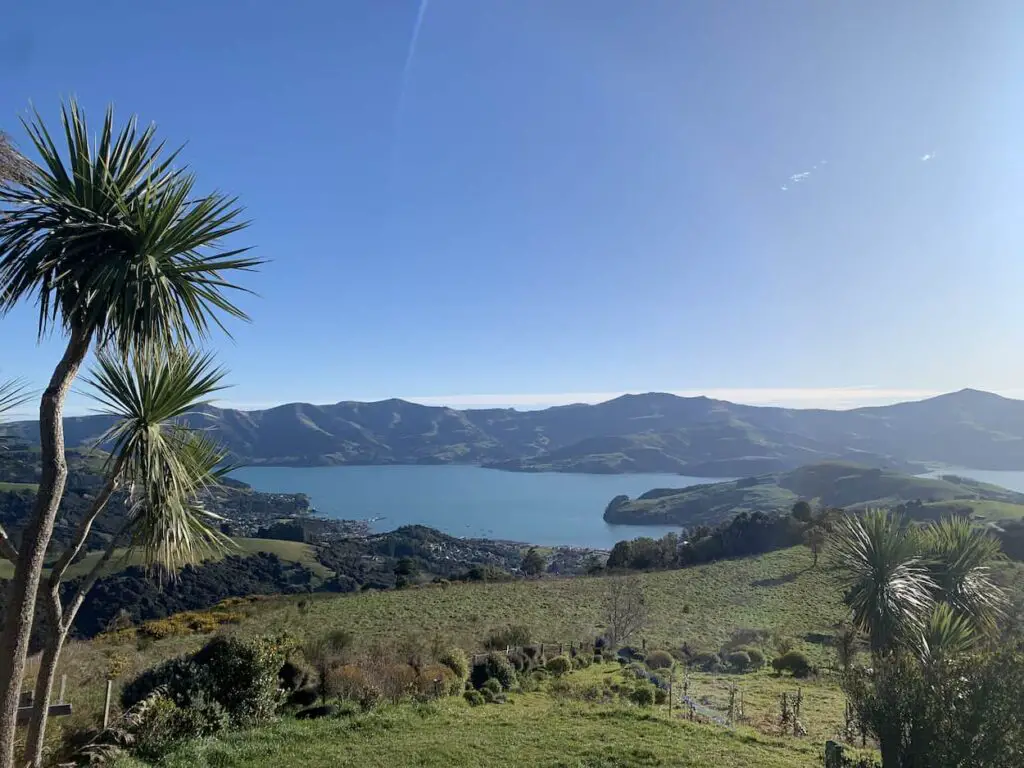
If you drive around 84 km (or about one-hour southeast) of Christchurch, you’ll reach the achingly beautiful village of Akaroa. The village is incredibly small, with a total of 770 residents. You will certainly not be the only retirees – 31.7% of the village’s residents are aged 65 or older.
Akaroa is an excellent retirement location for those who are aquatically-minded. The sheltered harbour (which actually docks some fairly large cruise ships) is a fantastic place to set off for fishing or exploring the nearby coast.
Medical care is handled by the Akaroa Health Centre, which replaced the former Akaroa hospital. The hospital stood on the exact same site (until it was destroyed by an earthquake in 2011).
Akaroa, as you have probably worked out, is not the cheapest place to retire to in New Zealand. Although you can get a basic two-bedroom home for around NZ$500,000, the median price has skyrocketed in recent years, and the average median house price is NZ$1,031,000.
6. Coromandel Peninsula
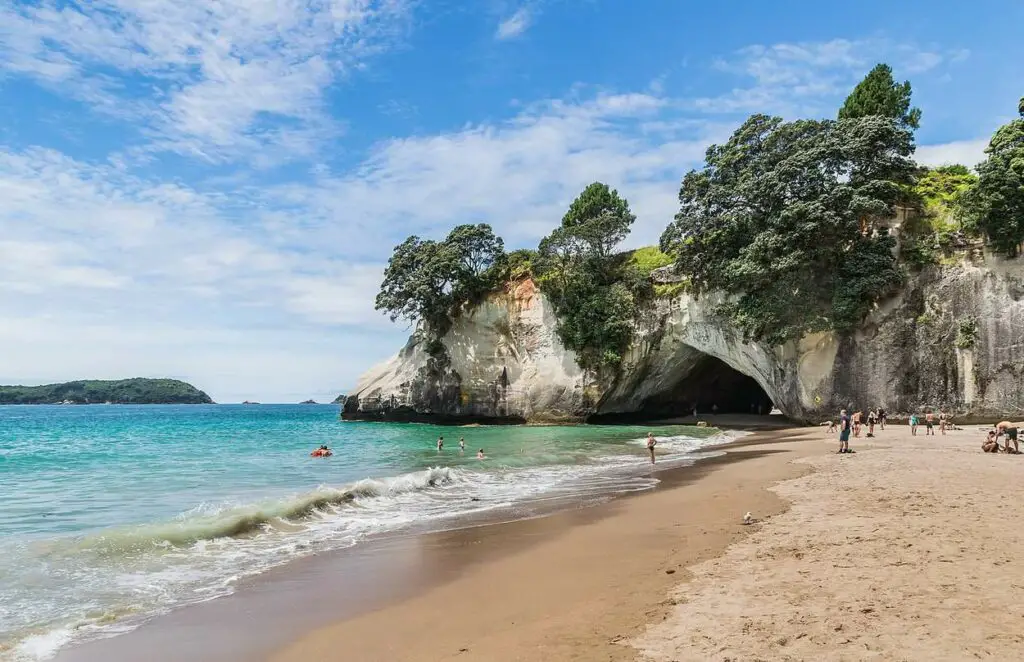
Perhaps you don’t want to retire to a large city, but you still want city life to be accessible. This is why New Zealand’s Coromandel Peninsula is a fantastic choice—as it’s one of the leading retirement destinations within easy reach of Auckland. In fact, when the weather allows it, you can see the Peninsula from central Auckland.
There are quite a few small towns to choose from on the Peninsula, the largest of which is Thames (which is not exactly that large). Thames has a population of 7,630 people, and it features the only hospital in the entire region. There’s much to like about the Thames, but it’s not the prettiest among the potential interesting places to retire to on the Coromandel Peninsula.
You may want to consider Coromandel Town (which is just referred to as Coromandel). This place is extremely popular with retirees, and just under 30% of residents are age 65 or over (out of a total population of only 1,930). You can find the best of both worlds in the town of Whitianga—the second-largest town in the area.
Some 28.7% of Whitianga’s residents are aged 65 or older, out of a total population of 6,440. It should be noted that Whitianga’s population booms in the summer months, as the region is extremely popular with tourists—most of whom make the trip over from Auckland.
Since it’s so popular as a tourism destination, you’ve probably guessed the weather around here is generally quite gorgeous. This softens the cost of living. The median house price in Whitianga is NZ$1,132,182, with a median weekly rental of NZ$523. Because the area is so popular with holidaymakers, there is a decent variety of homes to choose from—including smaller, bach-style properties.

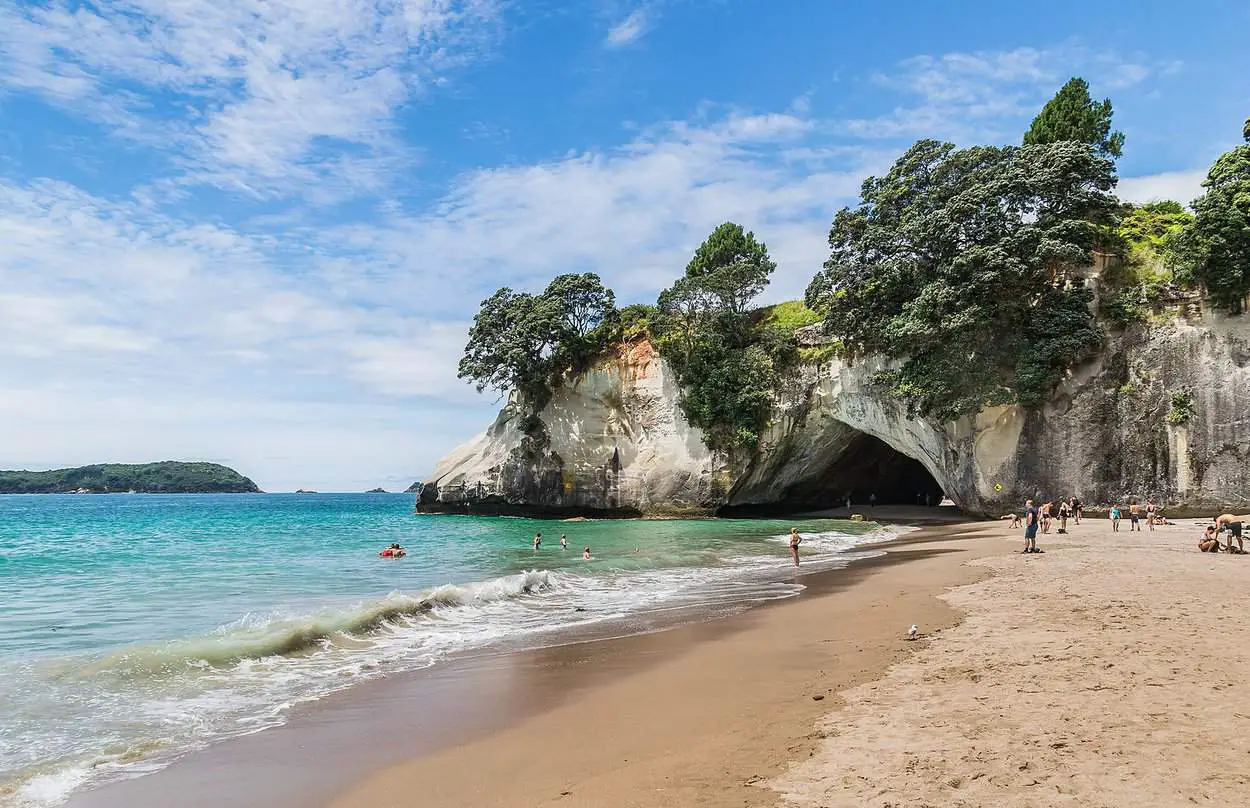
![Pros and Cons of Living in Auckland: Your Complete Guide [2024]](https://simplenewzealand.com/wp-content/uploads/2023/04/Depositphotos_417009116_L-1-768x512.jpg)
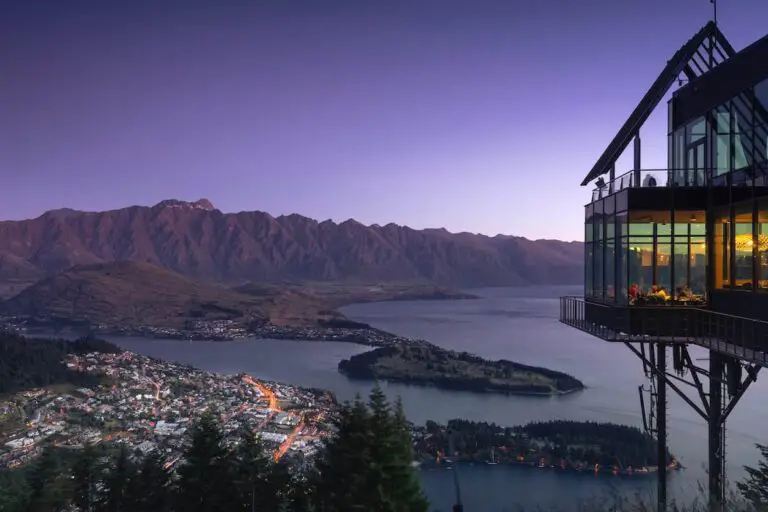
![New Zealand vs Singapore: Best For Living And Immigration [2024]](https://simplenewzealand.com/wp-content/uploads/2023/02/IMG_1983-768x576.jpg)


![Cost of Living for An Average Family in New Zealand [2024 Guide]](https://simplenewzealand.com/wp-content/uploads/2023/01/Depositphotos_48225999_L-768x512.jpg)